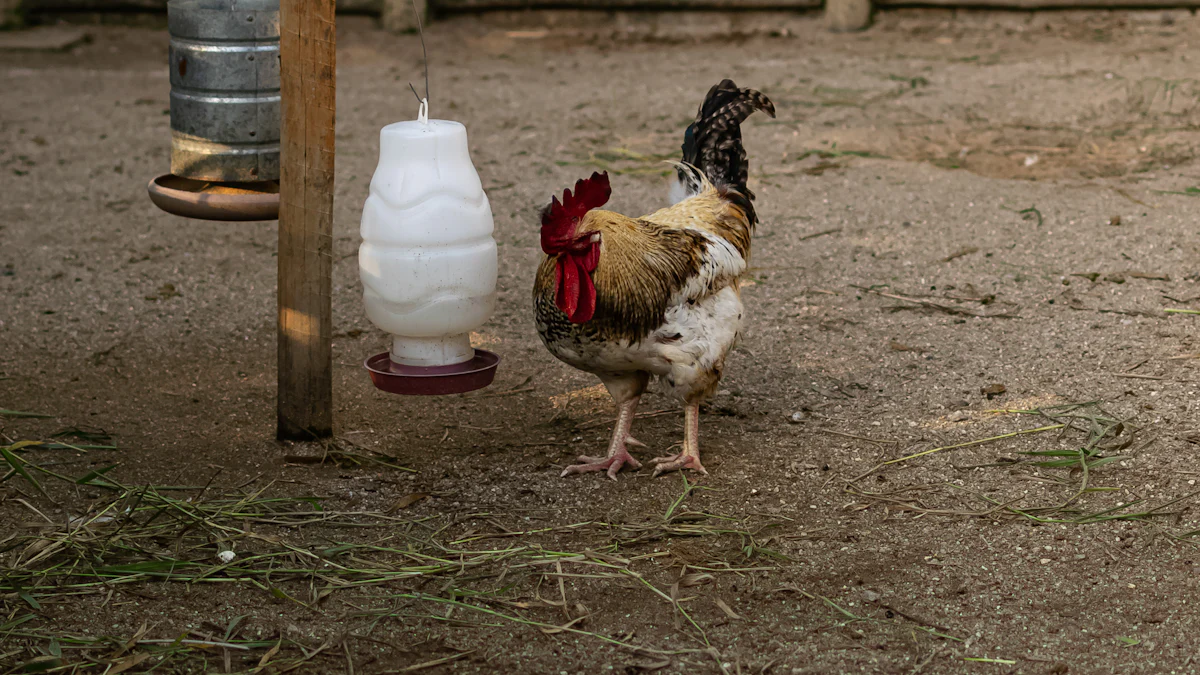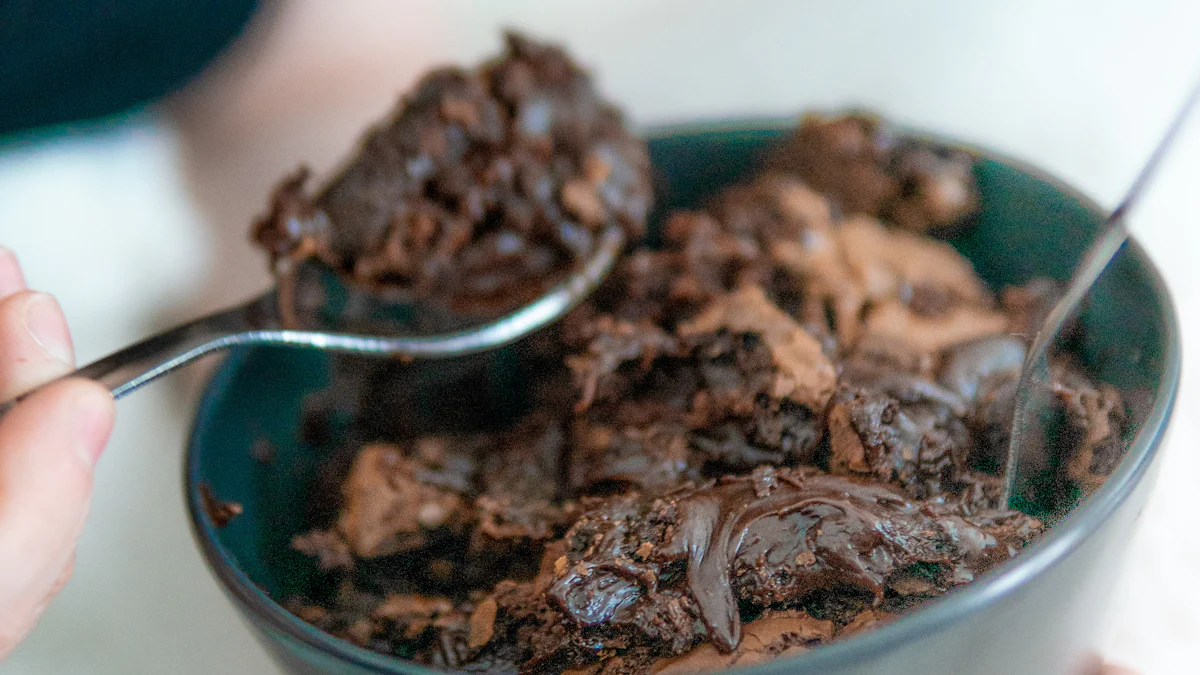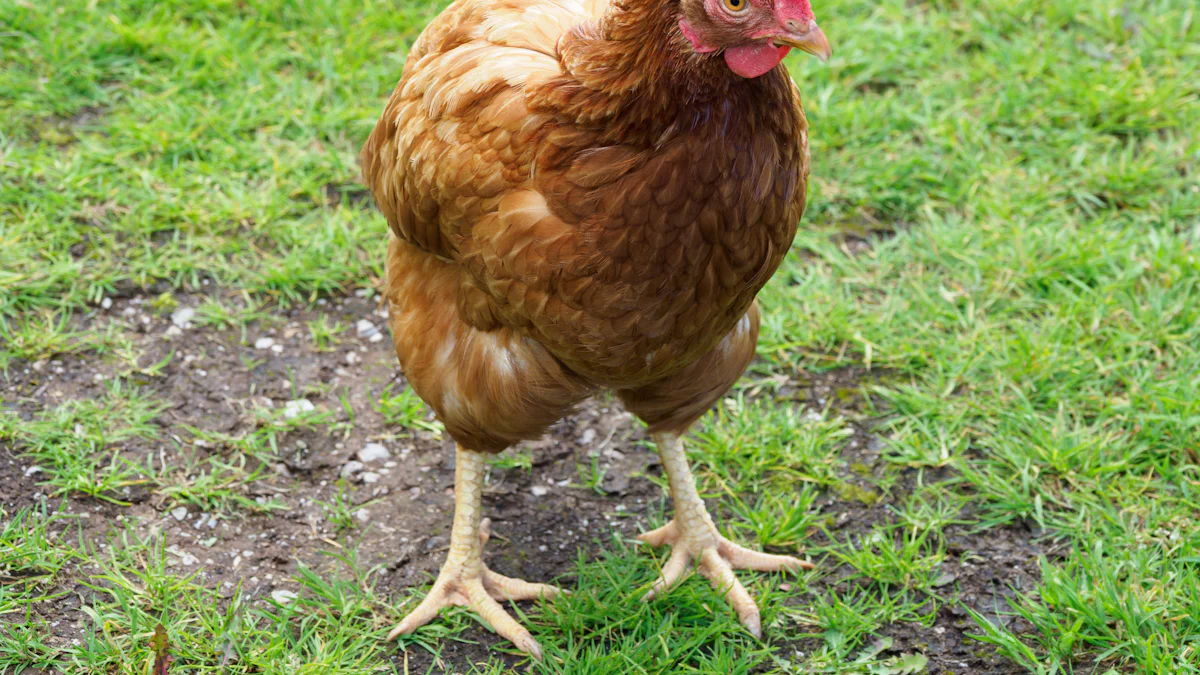
Dried mealworms for poultry are a powerhouse of nutrition, offering a rich source of protein, fats, fiber, and essential nutrients. These tiny treats help boost immunity, improve digestion, and enhance overall health. Chickens fed with dried mealworms for poultry often show better egg production, healthier feather growth, and increased vitality. Beyond nutrition, they encourage natural foraging behaviors, keeping birds active and engaged. By incorporating dried mealworms for poultry into their diet, poultry owners can support their flock’s growth, productivity, and well-being in a simple yet effective way.
Key Takeaways
- Dried mealworms are a nutritional powerhouse, providing approximately 50% protein, essential fats, and vitamins that support poultry health and productivity.
- Incorporating dried mealworms into your flock’s diet can enhance egg quality, feather growth, and overall vitality, making them a valuable supplement.
- Feeding dried mealworms encourages natural foraging behaviors, keeping chickens active and mentally stimulated, which reduces stress and negative habits.
- Moderation is key: feed adult chickens about 10-12 mealworms once or twice a week to complement their regular diet without overindulging.
- Use various feeding methods, such as mixing with regular feed or scattering in the foraging area, to promote engagement and natural behaviors among your birds.
- Store dried mealworms in a cool, dry place in airtight containers to maintain freshness and prevent spoilage, ensuring they remain a safe treat for your flock.
- Regularly check for signs of spoilage and practice good hygiene when handling mealworms to keep your poultry healthy and happy.
Benefits of Dried Mealworms For Poultry

Nutritional Advantages
Dried mealworms for poultry pack a powerful nutritional punch. They contain approximately 50% protein, making them an excellent supplement for muscle development and overall strength. Protein plays a vital role in supporting chickens during growth spurts, molting periods, and egg production. Alongside protein, dried mealworms offer essential fats, fiber, vitamins, and minerals. These nutrients contribute to healthier feather growth, improved digestion, and enhanced energy levels.
Omega-3 fatty acids found in dried mealworms also promote better egg quality, ensuring richer yolks and stronger shells. Studies in poultry science reveal that incorporating mealworms into a chicken’s diet can improve feed conversion rates and overall growth performance. By adding dried mealworms for poultry to their feeding routine, owners can provide their flock with a well-rounded nutritional boost.
Promotes Natural Behaviors
Chickens thrive when they can engage in their natural instincts. Feeding dried mealworms encourages foraging behaviors, as chickens actively scratch and peck to find these tasty treats. This activity keeps them physically active and mentally stimulated, reducing boredom and stress within the flock. A happy, engaged chicken is less likely to develop negative habits like feather pecking or aggression.
Providing dried mealworms for poultry also mimics the experience of hunting for insects in the wild. This connection to their natural environment fosters a sense of satisfaction and well-being. Owners often notice their chickens becoming more lively and interactive when mealworms are introduced as part of their diet.
Enhances Growth and Productivity
Dried mealworms play a significant role in boosting growth and productivity in poultry. The high protein content supports rapid muscle development, which is especially beneficial for broilers. Research highlights that chickens fed with mealworms show increased average daily gain and improved meat quality. For laying hens, the added nutrition enhances egg size, flavor, and quantity.
During colder months, dried mealworms help maintain robust health by providing the extra energy needed to combat harsh weather. They strengthen immunity, ensuring chickens stay healthy and productive year-round. By incorporating dried mealworms for poultry into their care routine, owners can see noticeable improvements in their flock’s overall performance and vitality.
Feeding Dried Mealworms For Poultry

Determining the Right Quantity
Feeding the right amount of dried mealworms ensures poultry gets the benefits without overindulging. A small handful, roughly 10-12 mealworms per adult chicken, works well as a supplement. For younger birds or smaller breeds, fewer mealworms may be more appropriate. Starting with smaller portions helps monitor how the flock responds. Overfeeding can lead to imbalances in their diet, so moderation is key. Dried mealworms for poultry should complement their regular feed, not replace it. This approach keeps their diet balanced and nutritious.
Establishing a Feeding Schedule
Consistency in feeding dried mealworms helps poultry thrive. Offering them once or twice a week provides a healthy protein boost without overwhelming their diet. Some owners prefer scattering mealworms during morning feeding times, while others use them as an afternoon treat. Observing the flock’s behavior can guide the best timing. For instance, mealworms can serve as a reward after free-ranging or as a way to encourage chickens back into the coop. A predictable schedule keeps the birds engaged and ensures they receive the right amount of nutrients.
Effective Feeding Methods
There are several ways to feed dried mealworms to poultry, each offering unique benefits. Mixing mealworms with regular feed ensures even distribution and prevents competition among birds. Scattering them in the foraging area encourages natural behaviors like scratching and pecking. This method keeps chickens active and entertained. For training purposes, hand-feeding mealworms builds trust and strengthens the bond between owner and flock. Regardless of the method, always provide fresh water alongside the mealworms. This practice supports digestion and overall health.
Storing Dried Mealworms For Poultry
Maintaining Freshness
Proper storage ensures dried mealworms stay fresh and retain their nutritional value. A cool, dry place like a pantry or cupboard works best for keeping them in good condition. Avoid areas exposed to direct sunlight or high humidity, as these can cause spoilage. Using an airtight container with a secure lid helps lock in freshness and prevents moisture from seeping in.
For those looking to extend the shelf life further, resealable bags with firm closures are a convenient option. These bags make it easy to access the mealworms while keeping them protected. Some poultry owners prefer freeze-dried mealworms, as they tend to last longer and maintain their quality better than microwave-dried alternatives. Always check for signs of spoilage, such as discoloration or an unusual smell, before feeding them to your flock.
Preventing Contamination
Keeping dried mealworms free from contamination is essential for the health of your poultry. Store them away from insects, rodents, and other pests that might compromise their quality. Clean utensils should always be used when handling mealworms to avoid introducing bacteria or dirt. Handling them with clean hands also minimizes the risk of contamination.
Sealed containers provide an extra layer of protection, ensuring no foreign particles or pests can get inside. Some poultry owners add bedding materials like oats or wheat bran to the container for added freshness, though this step is optional. Discard any uneaten mealworms left in the feeding area to prevent spoilage and maintain hygiene. By following these simple steps, poultry owners can ensure their dried mealworms remain safe and nutritious for their flock.
Feeding dried mealworms to poultry offers numerous benefits, from boosting nutrition to encouraging natural behaviors. These protein-packed treats support healthier feathers, better egg production, and more active, content birds. Proper feeding practices and storage ensure mealworms remain a safe and valuable addition to their diet.
Incorporating dried mealworms into poultry care routines can transform the health and happiness of any flock. As one poultry owner shared, “My chickens and Guinea Fowl LOVE this brand of dried mealworms.” Ready to see the difference? Explore local stores or online options today and treat your birds to a nutritious delight!


